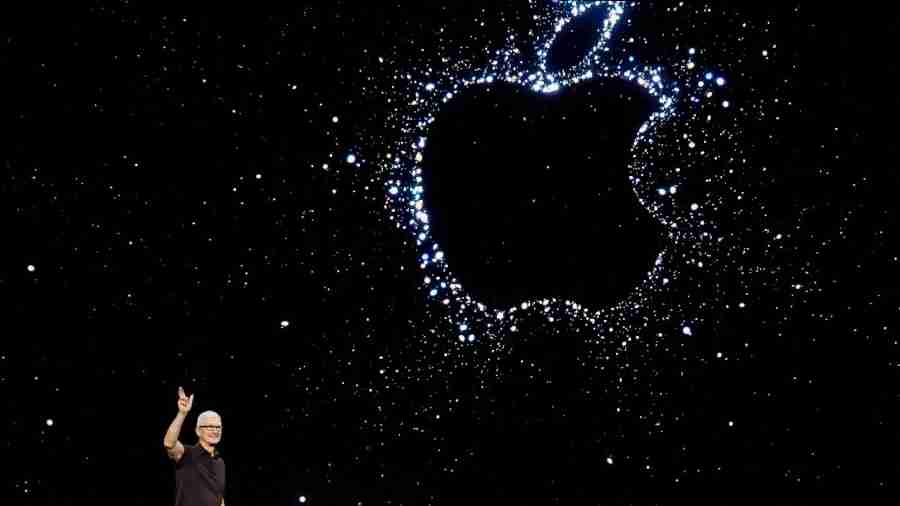Apple Inc introduced a range of new iPhone 14 models capable of sending a call for help via satellite during an emergency and crash-detection ability. The iPhone 14 models will test Apple’s ability to wring dollars from its relatively affluent customer base, which has kept spending in the face of rising inflation but is not immune to a weakening economy.
The iPhone 14 Plus model will have a larger screen like Apple’s iPhone Pro models but the same A15 processor chip as the previous iPhone 13. The Cupertino, California-based company also showed a trio of new Apple Watches, including a new Watch Ultra model aimed at extreme sports and diving. The Ultra has a bigger battery to last through events like triathlons and better waterproofing and temperature resistance to operate in outdoor environments, as well as better GPS tracking for sports.
The new Watches include an upgraded budget model called the SE and a Series 8 Watch with crash detection and low-power mode for 36 hours of battery life. The Series 8 with cellular will start at $499 and the SE will start at $299 with cellular. The Ultra, which includes cellular in its base model, will start at $799 and be available on September 23.
Apple said the new Series 8 watch has a temperature sensor that will work in conjunction with its previously released cycle tracking app to retroactively detect when a person has begun ovulating. The company emphasized the privacy approach of its cycle tracking. Privacy and reproductive health data have become a focus for tech companies in the wake of a US Supreme Court decision that ended a constitutional right to abortion in the US.
Apple said it does not have the key to decrypt health data such as cycle tracks. But while accessories like the Apple Watch have driven incremental sales from Apple’s existing user base, the iPhone remains the bedrock of its business with 52.4 per cent of sales in its most recent fiscal year. Apple’s stock was up 0.3 per cent about half an hour into the presentation. Some analysts believe Apple might give a preview of a mixed-reality headset on Wednesday.
The device is expected to have cameras that pass-through view of the outside world to the wearer while overlaying digital objects on the physical world. Analysts do not expect the device to go on sale until next year at the earliest. An early preview would be rare for Apple, which keeps its product plans secret until just before devices hit the market.
A rival headset called Project Cambria is in the works from Meta Platforms Inc, which is spending billions of dollars on the project. But in order to have compelling apps for a new headset, Apple might need to give developers time to become familiar with it. “Developing for a new and radically different type of platform is going to take people a lot longer,” O’Donnell said.
In addition to high-tech advances, there is likely to be increased attention to prices this year with inflation hovering near four-decade highs. Even before the pandemic when the economy was booming, people were baulking at the substantial price tags for smartphones with upgrades that don’t win over owners of recent models. In April of 2020, just as the pandemic was crushing the US economy, Apple released the second-generation iPhone SE with a price tag as low as$399, a 40 per cent mark down from the most affordable iPhone 11 unveiled last year. Now, with 9 per cent inflation battering Americans’ household budgets, analysts wonder if consumers won’t wait a little longer to upgrade phones or pass on the earphones that can cost as much as filling up their gas tanks each month.
“Pricing is a key watch point in a tough macro which comprises inflationary pressures and pull back in consumer spending, but we believe it matters more for wearables which are considered more discretionary purchases relative to iPhone by consumers,” JPMorgan analysts wrote.











